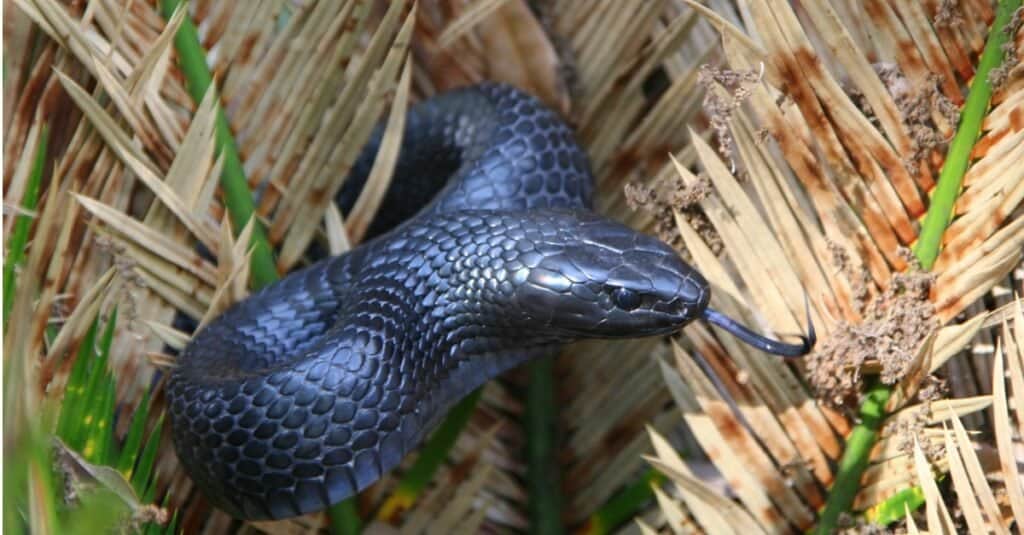Introduction
Tiger snakes (Notechis scutatus) are among one of the most interesting yet feared reptiles located in Australia. skillstrainingcollege.com.au With their striking appearance and potent poison, these serpents stimulate a mix of admiration and care. Observing tiger snakes in their natural surroundings can be a thrilling experience for nature enthusiasts, wild animals digital photographers, and scientists alike. Nonetheless, it's important to approach this endeavor with regard for the animal's environment and an understanding of precaution to avoid serpent bites.
In this detailed guide, we'll discover exactly how to safely observe tiger serpents in their natural habitat. We will cover subjects varying from comprehending their habits and habitats to first aid for snake attacks-- outfitting you with knowledge to improve your experience while minimizing dangers.
What is a Tiger Snake?
Tiger snakes are very venomous serpents native to Australia, especially Tasmania and coastal areas. They are recognized for their unique banded pigmentation appearing like a tiger's red stripes, which can range from yellowish-brown to dark brownish or even black.
Physical Characteristics
Tiger snakes are tool to large-sized snakes that can mature to 2 meters long. Their bodies are durable, and they have a wide head that is definitely bigger than their necks.
Habitat Preferences of Tiger Snakes
These reptiles normally occupy wetlands, tidewaters, and seaside areas but can likewise be located near freshwater resources like rivers and lakes. Recognizing where these serpents live is crucial for any person seeking to observe them safely.
Understanding Tiger Snake Behavior
Are Tiger Snakes Venomous?
Yes, tiger snakes are among the most poisonous serpent types internationally. Their poison contains neurotoxins that can lead to serious medical difficulties if bitten.

Behavioral Traits
Tiger serpents are generally reluctant animals; they like to avoid human communication. Nonetheless, they can end up being hostile if endangered or collared.
Where Can You Discover Tiger Snakes?
Tiger Snake Habitat Exploration
To securely observe tiger serpents https://skillstrainingcollege.com.au/venomous-snakebite-treatment/ in their all-natural habitat, it's necessary first to determine where they grow. They tend to prefer:
- Coastal marshlands Mangroves Swamps Riverbanks
Best Areas for Observation
Some advised areas include:
- Tasmanian wetlands The coastlines of southerly Australia National parks with water bodies
Safety Safety measures Prior to Observing Tiger Snakes
Understanding the Risks of a Tiger Serpent Bite
Although experiences with tiger serpents can be thrilling, recognizing the dangers entailed is extremely important:
Recognize signs and symptoms of a snake bite: swelling at the site, discomfort radiating from the bite area. Know emergency get in touches with: Familiarize yourself with neighborhood emergency situation services. Carry a first-aid package especially outfitted for snake bites.First Help for Serpent Bites: What You Need to Know
Knowing what actions to take if bitten might save your life or somebody else's:
- Stay calmness; activity raises venom spread. Call for medical assistance immediately. Do not use ice or attempt suctioning.
How to Securely Observe Tiger Snakes in Their Natural Habitat
When you choose to observe tiger serpents in the wild:

Equipment Required for Observation
Essential Equipment Checklist
- Binoculars First-aid kit specifically developed for serpent bites Field guidebook on Australian reptiles Camera (with zoom capability)
Snake Bite Emergency treatment Kit Essentials
A well-equipped first aid set ought to include:|Item|Purpose|| -------------------------------|-------------------------------|| Compression bandage|To immobilize the afflicted location|| Antihistamines|For allergic reactions|| Emergency skillstrainingcollege.com.au contact numbers|Quick accessibility during emergency situations|
Interpreting Tiger Serpent Signals
Understanding exactly how tiger serpents communicate through body language assists onlookers assess when it's safe or dangerous:
Common Behaviors
Defensive posture: If coiled or elevated off the ground. Retreating behavior: When they gradually retreat from prospective threats.Dealing With Potential Encounters
Even with preventative measures taken, an encounter might still happen throughout your observation journey:
Remain calm; panicking only enhances risks. Slowly back away without turning your back on the snake. Make your visibility known vocally yet avoid abrupt movements.Frequently Asked Questions Concerning Tiger Snakes
1. What must I do if I see a tiger snake?
Remain tranquility; observe from a range without troubling it.
2. Are infant tiger snakes dangerous?
Yes, adolescent tiger serpents are birthed venomous and might present dangers comparable to adults regardless of being smaller.
3. How usual are tiger snake bites?
While cases take place annually in Australia, fatalities are rare as a result of timely therapy availability.

4. Can I keep a tiger serpent as a pet?
Keeping wild tiger snakes as family pets is prohibited in many areas because of conservation laws.
5. What does a tiger serpent attack appearance like?
Bite marks typically reveal two puncture wounds in addition to localized swelling and discoloration.
6. Exactly how reliable is antivenom?
Antivenom treatment is very reliable when administered timely after a bite.
Conclusion
Observing tiger serpents in their all-natural habitat provides an exciting opportunity for wildlife enthusiasts yet have to be come close to with care and regard for both the creature and its setting. By equipping on your own with expertise about these interesting reptiles-- including recognizing their habits and precaution-- you can enjoy remarkable experiences while significantly decreasing dangers connected with encounters.
In summary, constantly focus on safety by preparing effectively before embarking on any wild animals observation exploration-- especially when taking care of several of nature's most venomous creatures like the tiger snake!